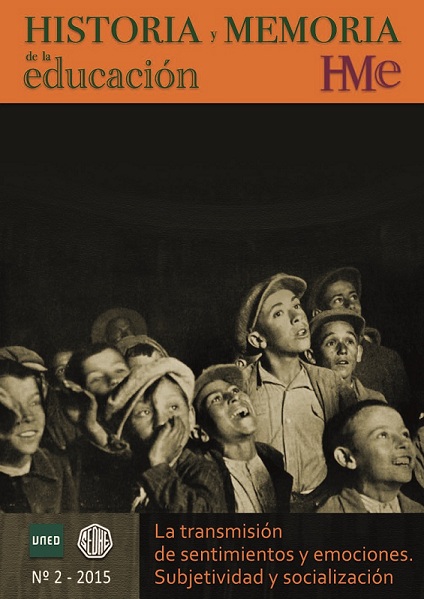Bondad, compasión y virtud: claves de las propuestas educativas de Rousseau
DOI:
https://doi.org/10.5944/hme.2.2015.14283Palabras clave:
Rousseau, Bondad, Compasión, Virtud, EducaciónResumen
La defensa de la bondad originaria del ser humano es una de las concepciones más conocidas y polémicas del pensamiento de Rousseau. En este artículo se analiza la vinculación de su concepción antropológica con su modelo educativo. Al defender que el ser humano tiene una «disposición» al bien, es compasivo y se siente concernido ante el sufrimiento ajeno, Rousseau no piensa en un regreso al estado salvaje, sino en una educación que desarrolle dichas tendencias, mediante «las máximas de la piedad» y el ejercicio de la virtud. De este modo, propone una educación orientada al fomento de la cooperación y de los sentimientos humanitarios, que vea en el otro a un igual más que a un rival. Finalmente, se reflexiona sobre la ambivalencia de la compasión y sobre algunas de las valoraciones de este sentimiento, considerado por Rousseau como origen de los sentimientos de humanidad.
Descargas
Descargas
Publicado
Cómo citar
Número
Sección
Licencia

- Los autores conservan los derechos de autor y otorgan a la revista el derecho de primera publicación con el trabajo simultáneamente bajo una licencia Creative Commons Atribución-NoComercial 4.0 Internacional que permite a otros compartir el trabajo con un reconocimiento de la autoría del trabajo y la publicación inicial en esta revista.












